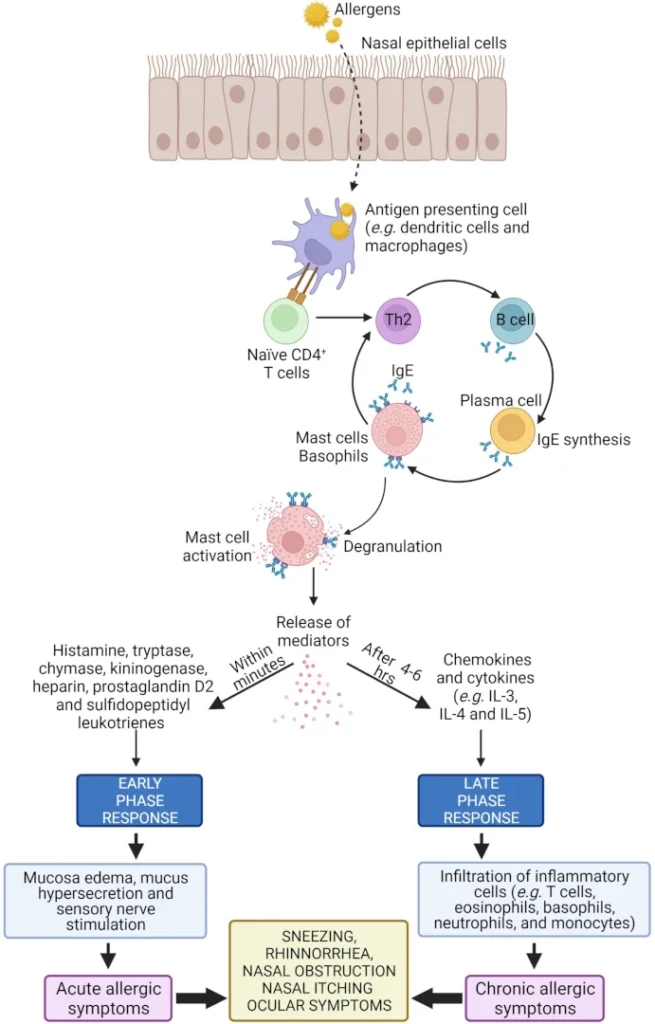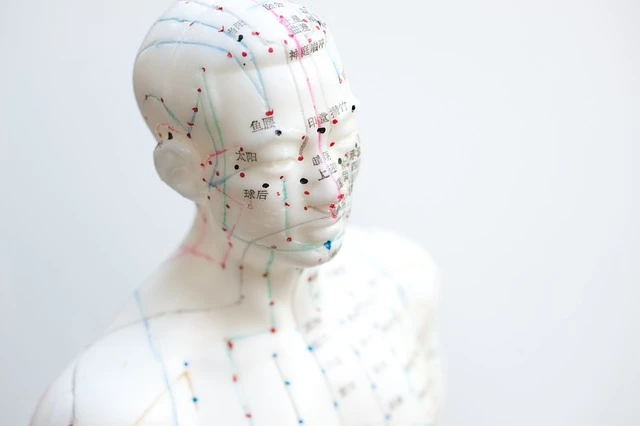This post may contain affiliate links and ads in which we may earn a small percentage of purchases.
This information is for educational purposes only. Please consult with a healthcare provider for any diagnosis or treatment.
A recently published systematic review on Dovepress has brought fresh insights into the effectiveness of acupuncture for allergic rhinitis (AR) as a potential treatment option. AR is a chronic inflammatory condition affecting millions worldwide.
This comprehensive evaluation highlights acupuncture’s potential to alleviate AR symptoms through various biological mechanisms. With its minimal side effects and potential for improving quality of life, acupuncture is increasingly being recognized as a valuable integrative therapy for allergic rhinitis.
Quick Links
What It Allergic Rhinitis?
Allergic rhinitis is a widespread condition caused by an overactive immune response to allergens like pollen, dust mites, or animal dander.
A clear and beginner-friendly guide covering over 400 acupuncture points, ideal for students and learners.
 View Book
View Book
A stainless-steel acupuncture pen and gua sha set for massage, reflexology, and tension relief.
 View Product
View Product
Allergic rhinitis due to plant pollen is commonly called hay fever or seasonal allergy.1
Characterized by symptoms such as nasal congestion, sneezing, itching, and a runny nose, AR significantly impairs daily life and productivity.

Standard treatments—including antihistamines, corticosteroids, and immunotherapy—offer symptom relief but often come with drawbacks such as side effects, limited efficacy, or the need for long-term commitment. These challenges have spurred interest in exploring alternative treatments, including acupuncture, rooted in traditional Chinese medicine.
What Data Says About Acupuncture for Allergic Rhinitis
The systematic review included 30 randomized controlled trials (RCTs) with a total of 4,413 participants, analyzing the efficacy and safety of acupuncture for allergic rhinitis
The review underscores the effectiveness of acupuncture in mitigating AR symptoms, as demonstrated in randomized controlled trials (RCTs), systematic reviews, and meta-analyses. Acupuncture has been shown to improve nasal congestion, itching, and overall quality of life in AR patients.
Studies reveal that acupuncture works through several mechanisms: it modulates immune responses, reduces inflammation, regulates neural pathways, and even influences microbiota balance. For instance, patients receiving acupuncture experienced notable reductions in inflammatory markers and an increase in regulatory T cells, which play a key role in suppressing allergic reactions.

Additionally, acupuncture demonstrated comparable efficacy to antihistamines in some trials, with the added advantage of fewer side effects. Patients also reported enhanced well-being, likely due to acupuncture’s role in reducing stress and promoting emotional balance through neural regulation.
Limitations
While the findings are promising, the review also highlights limitations in the existing research. Many studies had small sample sizes, lacked standardized acupuncture protocols, or were subject to performance bias. Moreover, the long-term effects of acupuncture for AR remain unexplored. These gaps call for more rigorous, large-scale studies to establish standardized treatment guidelines and validate the mechanisms involved.
Acupuncture As A Promising Therapy
Acupuncture’s increasing usage in allergic rhinitis treatment reflects a broader shift towards integrative healthcare approaches. By bridging traditional and modern medicine, acupuncture offers a holistic alternative for managing a condition that heavily impacts quality of life.
Patients and healthcare providers should approach acupuncture as part of a broader treatment plan, especially when conventional therapies are not a viable option. With further research and standardization, acupuncture could become a cornerstone in the multidisciplinary management of AR.
This review not only sheds light on acupuncture’s potential but also opens the door to future studies aimed at optimizing its application in clinical settings. For AR sufferers seeking relief beyond conventional methods, acupuncture offers a beacon of hope.
Link to the review here: A Review of Recent Progress in the Mechanisms and Effectiveness of Acupuncture for Treating Allergic Rhinitis
This information is for educational purposes only. Please consult with a healthcare provider for any diagnosis or treatment.
References
- Medline Plus. 2024. Allergic rhinitis. Retrieved January 4th, 2024 from https://medlineplus.gov/ency/article/000813.htm ↩︎
Medical Disclaimer: This article is for informational and educational purposes only and is not a substitute for professional medical advice, diagnosis, or treatment. Always consult a qualified healthcare provider with any questions about a medical condition or treatment.




